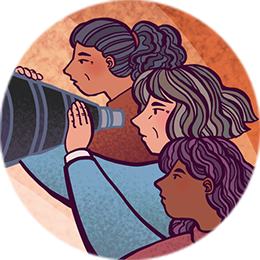Radical Cystectomy and Sex: A Woman's Perspective
I had a radical cystectomy just over a year ago. Prior to surgery, I was informed that the surgery would involve the removal of my bladder, cervix, appendix, ureter, part of the small bowel, a number of lymph nodes - oh, and the anterior wall of my vagina.
The removal of the anterior wall of the vagina was mentioned at the end, in a very matter-of-fact way, and a quick comment to say that the vagina may be a little "shorter" than before surgery.
I'd had a hysterectomy years earlier, or otherwise, that would have also been done. That was it - no further information was given.
Sex after surgery was barely mentioned
The surgery went ahead as planned and my recovery was ahead of schedule.
The physiotherapist came to see me, a middle-aged, rather scrawny, timid-looking woman who looked like she could do with a good meal.
I was given an A4-sized sheet of exercises, all with accompanying diagrams of how the exercises should be performed.
She went through some of the exercises with me and then said, "I don't know if you're having sex," then up came her hand and she said, "and I don't want to know if you are, but here are some pelvic floor exercises."
That was it, that was the only time throughout all my appointments, surgery, and hospital stay that the s-word was openly mentioned by a medical professional, albeit in a very "we don't wanna speak about it" kind of way.
I was focused on healing at first
To be honest, after surgery, sex was the last thing on my mind. The removal of my cervix and part of my vagina for me took the longest time to heal. It was painful to sit on hard chairs or to be on a bumpy car journey. I started to take a soft pillow out with me. This eased the pain of sitting considerably.
I guessed that the internal healing would take around the same time as after having a hysterectomy, around six weeks. I guessed - no one actually ever advised me.
After the "we don't talk about sex" speech from my physiotherapist, I really didn't feel comfortable asking questions.
Searching the internet
So with the lack of any sexual information from my medical practitioners, I began to read. Thanks to the internet, there is lots of information out there. However, not all of the information out there is very encouraging. But most end by saying that you will return to a "new" normal.
No two women are the same
A new normal, what is a new normal? When will my "new" normal start?
The truth is, no two women are the same. We all heal at different rates and will have our own individual issues to deal with. So when can "normal" intimacy be resumed?
You do need to give yourself at least 6 to 8 weeks to heal, before even considering penetrative sex. But in the meantime, there is nothing wrong with a kiss and a cuddle.
I started to think of it as "courting" again. Getting to know each other's bodies again.
Lack of libido
You may find that you have no interest in sex and worry that you have lost your libido.
FACT - your body has just been through one hell of a traumatic ordeal. So don't beat yourself up, be patient with yourself. Rest, eat well, look after yourself. You need to love yourself again before you can engage with loving someone else.
Sex after bladder removal: What to consider
There are a few practical things to consider before engaging in penetrative sex.
You may want to consider the use of medical dildos, to help to stretch the vagina. There are many different sizes, and it's considered best to start with a smaller one. Your cancer nurse specialist should be able to put you in touch with a sex therapist who can help with this.
Also, vaginal dryness is a very common problem. This is easily remedied by purchasing a lubricating gel. These are available to purchase over the counter at your local pharmacy.
Lastly, sex may be uncomfortable at first, even a little painful. Listen to your body, and be prepared to stop lovemaking activities. This is perfectly normal at first. But the key thing is to talk to your partner. Share your fears, tell them to be prepared that they may have to stop.
A healthy sexual relationship after cystectomy
Sex is different than before my radical cystectomy, but different doesn't mean bad.
With perseverance, time, some professional advice, and a loving partner a good, healthy, sexual relationship can be resumed after a radical cystectomy.

Join the conversation